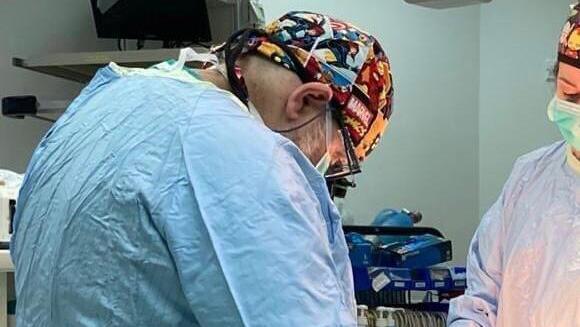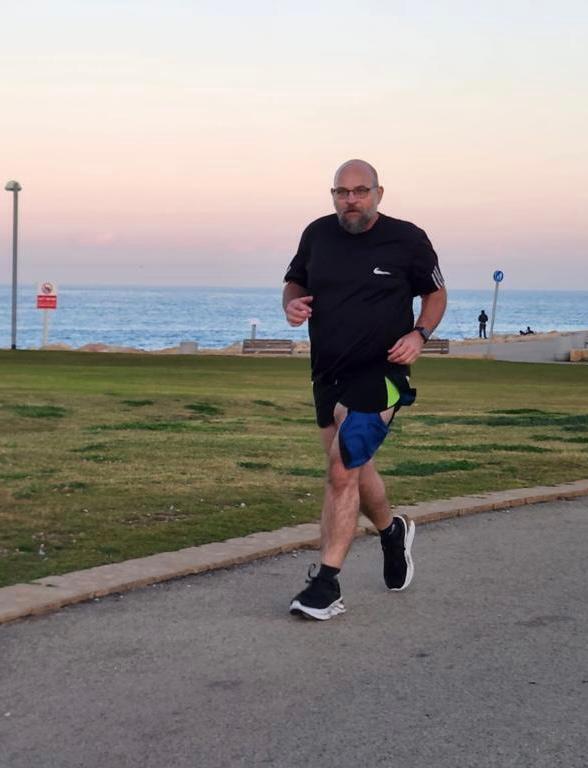Obesity is a common condition in which individuals are often unfairly blamed for their weight, despite not being at fault. It significantly impacts various aspects of life, including self-esteem, quality of life, social connections, employment, and overall health.
Read more:
In Israel, Central Bureau of Statistics data reveals that 2 out of every 10 children in first grade and three out of every 10 seventh-grade students struggle with excess weight. Research indicates that these children are more susceptible to experiencing abuse, bullying, and feelings of loneliness.
As someone who personally endured the challenges of severe childhood obesity, I can provide firsthand testimony of the suffering I went through. With a background as a bariatric surgeon, unit manager, and a trailblazer in pediatric bariatric surgery (procedures that reduce stomach size), I have dedicated two decades to this field and have observed a significant rise in the prevalence of obesity among children.
In this column, my aim is to represent the voices of the numerous children who have approached me, sharing their difficulties, and to offer readers a glimpse into the experiences of overweight children. I hope to shed light on their struggles, their unique needs, and, most importantly, the social and health challenges that society places upon them.
Once overweight, always overweight
Morbid obesity is a condition that profoundly affects children on a daily basis. At any given moment, they may face blame for their illness and receive suggestions for healing. It is a condition that cannot be concealed or disregarded. Even if weight loss is achieved, the fear of regaining excess weight persists throughout life. This becomes an ongoing battle, and children require support in this fight.
The most crucial factor for successfully treating this disease lies in the child's environment and family. Parents possess the ability to greatly reduce the likelihood of their child suffering from obesity by providing a healthy food environment at home, engaging in conversations about proper nutrition, incorporating abundant fruits and vegetables into their meals, and more. However, there are instances where parents are unable to alter their family's behavioral patterns, even when their child is ill.
It is important to understand I do not blame parents for their child's illness. Rather, it is our collective responsibility as a society that we have not effectively guided parents on how to prevent children from developing excess weight.
When you ask parents of an overweight child why they don't refrain from bringing unhealthy food home, they often respond by explaining that there are other children in the household who enjoy fatty and sweet foods, and they themselves are not overweight. This raises the question: How would they have acted if their child had a life-threatening milk allergy? Would they still introduce dairy products into the house?
4 View gallery


Dr. Karplus performing surgery
(Photo: Safra Children's Hospital Spokesperson's Unit)
Those who wish to support an overweight child in dealing with their condition must understand the child's perspective - they will not feel comfortable with a diet that only they have to follow, and they may struggle to consistently adhere to it over time. Conversely, the family as a whole would not suffer from transitioning to a healthier menu.
In our society, food holds a significant place: it brings us joy and comfort, accompanies us during times of sadness, and is present in various social and professional settings. However, this same society tends to stigmatize overweight children by subjecting them to hurtful comments, exclusion, and restrictions on the very foods it celebrates. It steers them towards diets and provides them with specialized menus, but if they struggle to follow them and regain weight, they are often blamed for their perceived failure and expected to make another attempt.
When obesity turns morbid, diet success rate caps at a meager 5%, even with careful dietary monitoring. It raises the question of what therapeutic treatment would be deemed acceptable with such a low chance of success. Furthermore, which doctor would initiate treatment with a success rate that fails to reach 10%? Despite these discouraging statistics, we continue to recommend this treatment repeatedly, and children persist in their attempts, enduring never-ending struggles and frustrations.
While physical activity can be beneficial for overweight children, certain considerations need to be taken into account. Sending an overweight child to play football, run, or swim with other children may not be the best idea, as they may feel like outsiders in these activities. However, it is worth noting that most children who have successfully lost weight over time have done so in an environment that provides tailored physical activity.
In some cases, the entire family engages in shared activities, creating a supportive atmosphere. Many of these children started with small groups or personal trainers, gradually building confidence and progressing to larger groups. The world of sports offers a wide range of disciplines, and it is possible to find one that ignites the child's interest. Consulting a sports medicine physician who is knowledgeable about the condition and various sports disciplines can provide valuable guidance and appropriate advice.
When considering bariatric surgery for children and adolescents, a mandatory six-month period of dietitian follow-up is required before a committee can grant approval for the surgery. Generally, this approval is given when the individual is around 15 or 16 years old. However, instead of conducting a comprehensive assessment of the child and evaluating their suitability for nutritional interventions, they are immediately referred for surgery, even if the likelihood of failure is already known. Despite research indicating the ineffectiveness of diets for extreme weights, the existing guidelines do not permit surgery without an extensive dietary intervention.
Currently, the prevailing recommendation is to view bariatric surgery as an essential component of treatment rather than a last resort. It is advocated that bariatric surgery should be integrated into a comprehensive therapeutic approach that involves making lifestyle changes for the entire family.
When it comes to medical treatments for weight loss, unfortunately, these interventions are generally not approved for children and adolescents. The same restrictions also apply to endoscopic treatments. It is my hope that in the future, we will be able to promote the utilization of these treatments and gain a better understanding of their role in the younger population.
No more 'Failure' in your vocabulary
At this stage, it is crucial to place emphasis on detecting weight gain tendencies in young children. As a society, we must identify and address this issue before it becomes deeply ingrained. The government's "Efshari Bari" (“Healthy is possible”) initiative, which began in 2011, was a starting point for recognizing the problem. However, even after 12 years, our situation remains somewhat disconcerting.
We are observing a growing inclination towards weight gain in children aged 2 to 5, but there are various approaches to tackle this issue. Starting with specialized parental guidance, it is important to engage preschool teachers in discussions about healthy nutrition and encourage them to talk to children about the difference between good and bad food choices. Promoting education on healthy eating, incorporating enriching sports activities, and ensuring that every child participates in at least one sports club are all crucial steps in addressing this problem.
For those who still require medical attention, specialized teams are established specifically for children. Rather than following a standardized protocol, an individually customized approach, based on a comprehensive discussion involving multiple disciplines and evaluating the potential success of individual treatments, is required. The team should include professionals such as psychologists, nutritionists, sports doctors, pediatric surgeons, and endocrinologists. Collectively, they will assess the treatment plan and its outcomes every six months. Both parents and the child will receive ongoing support and feedback from the committee.
It is essential that every solution and approach starts with familial involvement. Simultaneously, it is crucial to eliminate the notion of "failure" from the protocol. The child's inability to lose weight is a result of the disparity between the treatment and the environment, not their own fault. Blaming them is detrimental to their eventual success.
The author is deputy head of Pediatric Surgery at Safra Children's Hospital.




